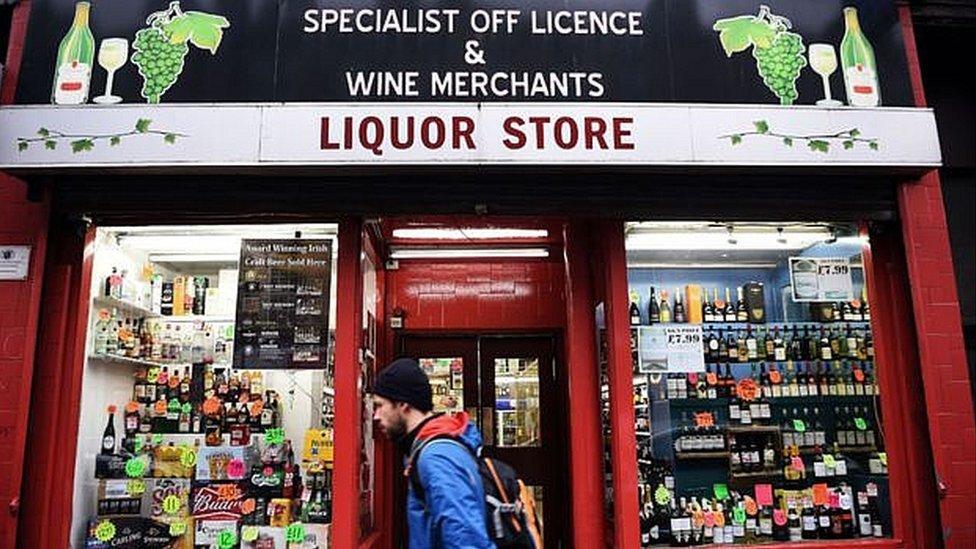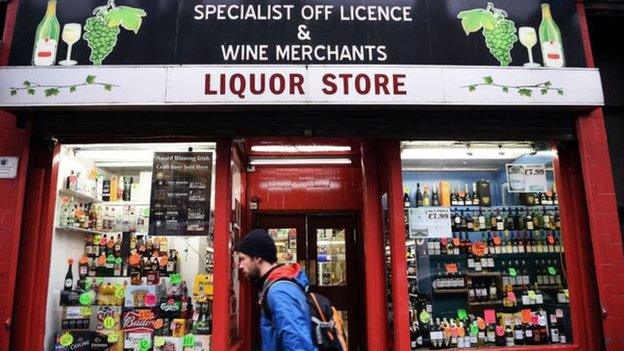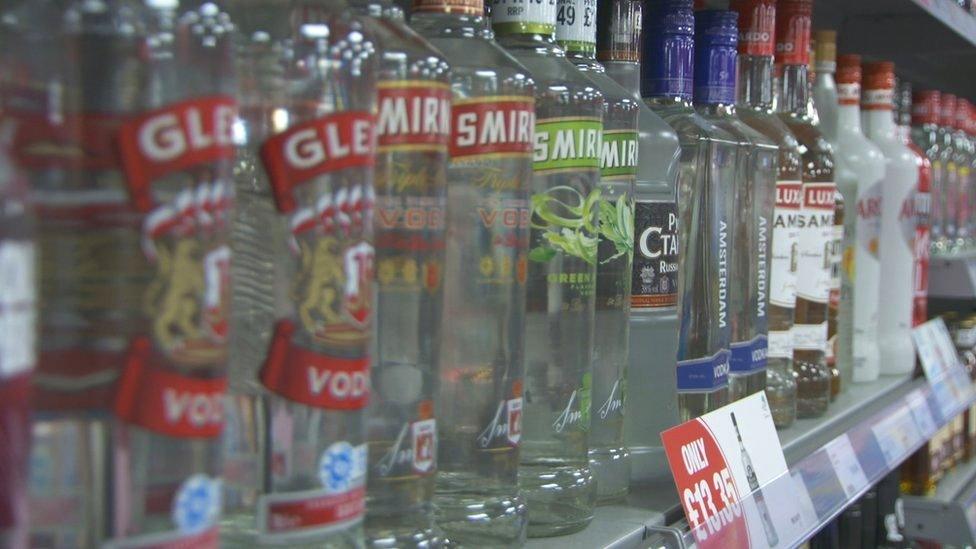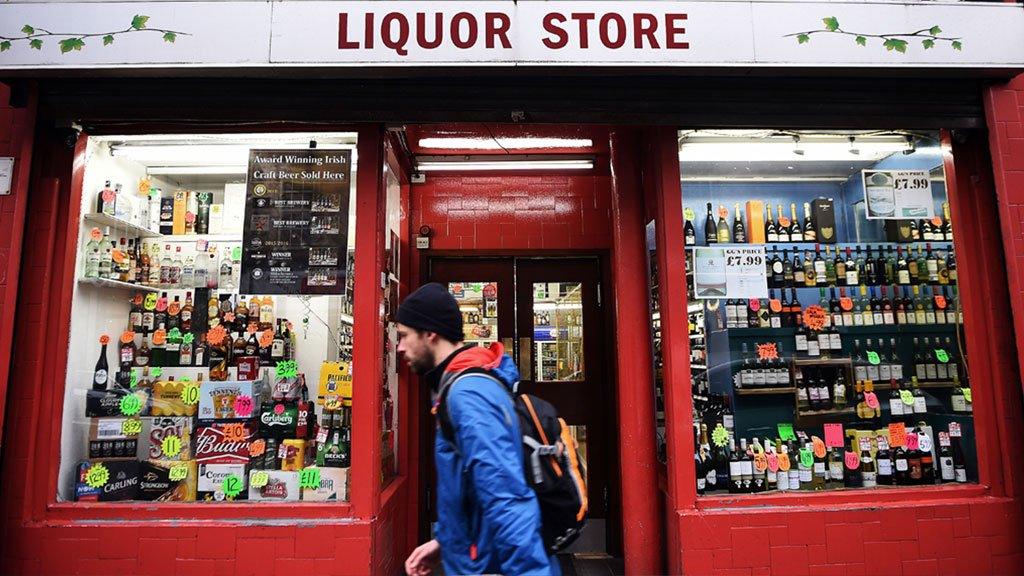Study assesses alcohol law's effect on homeless
- Published

Last May Scotland became the first country in the world to implement alcohol minimum unit pricing.
Glasgow Caledonian University is to lead a study looking at the impact of alcohol minimum pricing on the homeless.
Researchers will explore how the legislation has affected drinkers since it came into force.
Experts from three universities, including the University of Victoria in Canada, will also take part.
Last May Scotland became the first country in the world to implement alcohol minimum unit pricing.
Prof Carol Emslie, co-leader of the project, said: "We need to explore the potential benefits of this policy for homeless people but we also need to understand any potential negative consequences.
"We do not know how vulnerable groups such as people experiencing homeless have adapted to the higher price of alcohol such as vodka and strong white cider.
"Our study will inform decisions about minimum unit pricing in Scotland and provide guidance for other countries planning to introduce the policy."

Prof Carol Emslie hopes to shed light on how homeless people have adapted to the higher price of alcohol, such as vodka and strong white cider
The scientists will also work with colleagues at Stirling University and Heriot-Watt University in Edinburgh.
It will also be supported by experts from NHS Greater Glasgow and Clyde (NHSGGC) and The Homeless Network.
The findings of what will be the first study of its kind will help to inform the Scottish Parliament's consideration of the policy's impacts.
Project co-leader Prof Lawrie Elliott said: "You might think MUP would affect homeless people and street drinkers the most, given they represent the poorest groups in society and tend to consume cheap alcohol.
"However, we don't know this, nor do we know about any unintended consequences of the legislation for example switching to illicit alcohol or drugs."
- Published19 September 2019

- Published1 August 2019

- Published1 May 2019

- Published1 May 2018
